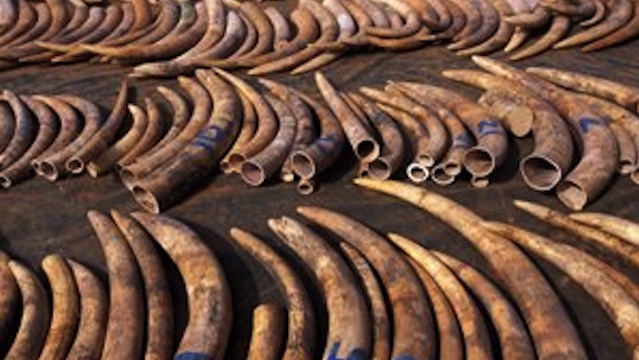SUMMARY
This is AI generated summarization, which may have errors. For context, always refer to the full article.

MANILA, Philippines – Environmental lawyer Antonio Oposa Jr has asked the National Bureau of Investigation (NBI) to investigate the illegal ivory trade in the country, now linked to its use in religious carvings like Santo Niño.
“They need to look into the international syndicate behind this illegal trade. There are people hunting the elephants, killing them, packing and shipping the ivory and carving it before it even reaches the Philippines,” Oposa told Rappler on Tuesday, September 25.
Now is time for the NBI and the International Conference for Environmental Compliance and Enforcement (INECE) to gather enough evidence against the smugglers so a case can be filed in court against them, he added.
Dr Theresa Mundita Lim, Director of the Protected Areas and Wildlife Bureau of the Department of Energy and Natural Resources, confirmed she received a copy of the lawyer’s request.
“We are coordinating on the matter now,” she said.
Oposa’s initiative comes after National Geographic magazine published a feature about the illegal ivory trade in the Philippines, considered a favorite destination for smuggled elephant tusks for their use in images of Catholic saints.
National Geographic also claimed that Monsignor Cristobal Garcia, who is said to be with the Cebu Archidiocese, offered tips on how to smuggle articles made of illegal ivory to the United States.
Monsignor Garcia himself had to flee the US and was expelled from the Dominicans in the 1980s after he was accused of molesting two altar boys, according to reports. Rappler has tried but failed to get in touch with Garcia.
The international trade in elephant ivory is banned since 1989 by the Convention on International Trade in Endangered Species of Wild Fauna and Flora (CITES), signed and ratified by the Philippines.
Last June, CITES expressed concern about the rise of the trade in the country, where record quantities of elephant tusks have been seized in the past 3 years, although not nearly as much as in China or Thailand. – Rappler.com
Add a comment
How does this make you feel?
There are no comments yet. Add your comment to start the conversation.